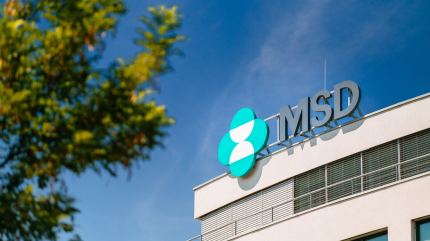
MSD’s investigational KRAS G12C inhibitor has shown signs of anti-tumour activity when used both alone and in combination with other oncology drugs.
Announcing the data at the American Society of Clinical Oncology (ASCO) meeting 2025, being held from 30 May to 3 June in Chicago, MSD said that MK-1084 was also safe and tolerable in patients with solid tumours, including advanced colorectal cancer (CRC) and non-small cell lung cancer (NSCLC), in the Phase I KANDLELIT-001 trial (NCT05067283).

Discover B2B Marketing That Performs
Combine business intelligence and editorial excellence to reach engaged professionals across 36 leading media platforms.
In patients with CRC, there was a 38% confirmed overall response rate (ORR) in the monotherapy arm. When used in combination with Erbitux (cetuximab), there was a 46% confirmed ORR, and when used with both Erbitux and mFOLFOX6(oxaliplatin and leucovorin plus 5-fluorouracil), the confirmed ORR was 38%.
Investigators also reported 43% unconfirmed ORR with MK-1084 alone, 56% in combination with Erbitux and 66% in combination with Erbitux and mFOLFOX6.
In patients with NSCLC, there was an ORR of 38% in the monotherapy arm, 77% when it was used in combination with Keytruda (pembrolizumab), and 53% when used with Keytruda and chemotherapy (carboplatin and pemetrexed).
In all arms, MSD states that MK-1084 had a manageable safety profile. Treatment-related adverse events (AEs) occurred in 58% of patients in the MK-1084 monotherapy arm; 94% of patients in the MK-1084 and Keytruda arm;, 93% of patients in the MK-1084, Keytruda and chemotherapy arm; 95% of patients in the MK-1084 and Erbitux arm; and 97% of patients in the MK-1084 with Erbitux and mFOLFOX6 arm.

US Tariffs are shifting - will you react or anticipate?
Don’t let policy changes catch you off guard. Stay proactive with real-time data and expert analysis.
By GlobalDataMSD Research Laboratories SVP and oncology, global clinical development Dr Marjorie Green said: “We are encouraged by the promising early data from the KANDLELIT-001 study and look forward to further researching the potential for MK-1084, as monotherapy or in combinations, including with Keytruda in certain settings in patients with KRAS mutations, which are among the most prevalent mutations in cancer.”
MSD is also investigating the KRAS G12C in several Phase III trials, including the Phase III KANDLELIT-012 study in patients with unresectable or metastatic CRC with KRAS G12C-mutated tumours and the Phase III KANDLELIT-004 study in patients with NSCLC with KRAS G12C-mutated tumours that express PD-L1 (NCT06345729).
ASCO updates
MSD also reported data from a Phase II/III study of zilovertamab vedotin as a combination therapy in patients with relapsed or refractory diffuse large B-cell lymphoma (DLBCL). The study achieved a 56.3% ORR.
Other major pharmaceutical companies have also revealed data around the ASCO 2025 conference. Pfizer announced data from its Phase III BREAKWATER study of Braftovi (encorafenib) in combination with Erbitux and mFOLFOX6.
Merck KGaA also highlighted success in two studies, a Phase III trial of its CSF-1R inhibitor pimicotinib in tenosynovial giant cell tumour (TGCT) patients and a Phase I study of M9140, a CEACAM5-targeting antibody-drug conjugate (ADC), in patients with metastatic CRC.




